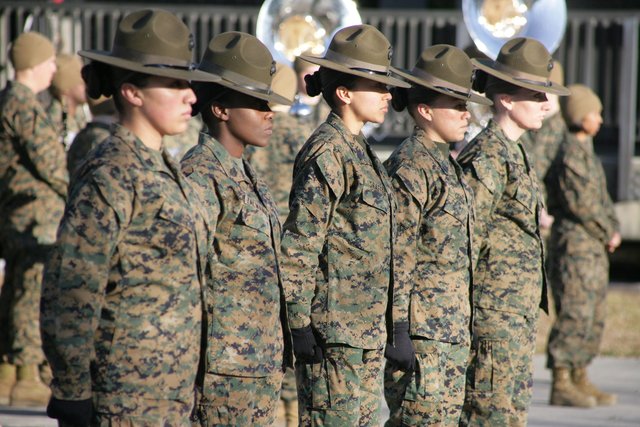
Every veteran has a different experience serving our country depending on who they are, their position, gifts and talents. The Veterans’ gender does make it a different experience and for women it is very often a complex, varied experience. According to Department of Veterans Affairs, there are approximately two million women veterans in the United States and Puerto Rico serving. One of those million, Sarah Maples shares her story with The Atlantic. Maples is the director of National Security and Foreign Affairs at the Veterans of Foreign Wars. She previously served as an intelligence officer in the Air Force. She states that being a women is often inconvenient, both in military life and civilian life. In the article, Maples explains that the one of the military’s requirements is that women to assimilate to their male counterparts. The expectation is that women will act and behave the same way men do. Their performance is rated the same way men’s are and their achievements always are in relation to their male counterparts. If that isn’t challenging enough, women also are expected to tamp down their emotional responses to what they see.. The uniform also tends to downplay any feminine characteristics these women carry.
The message is clear: if you make your gender a noticeable feature, it can also be used as an undesirable feature as ammunition against you. Military women have said that they feel slighted in comparison to their male counterparts, that they don’t get the same promotion opportunities or the same recognition. This does happen outside military life, of course, but the implication is that even after putting in the work to appear less feminine, more like their male counterparts, they still aren’t regarded as highly. And that is a catastrophe with many layers. For example, women are often denied recognition for their military accomplishments.
As you can see, women in the military do face an unfair stance. It truly is inconvenient. What makes it more inconvenient is that it does not end with removing women themselves from the military. Maples explains that, “The perceived invalidation of a woman’s service can also feel as if her experiences during or related to her service, to include combat, service-connected disabilities, and sexual harassment/assault, are also invalidated.” The military has work to do in this regard.
Maples explains in the article that the successes of women like Senators Tammy Duckworth and Joni Ernst, Representatives Tulsi Gabbard and Martha McSally who are among others that are helping to change the impressions people have of women who serve. Efforts by the Department of Veterans Affairs, veteran service organizations, and others have decided to put focus on the needs of female veterans have helped improve their experience while transition into civilian life. It is truly amazing to have these women as role models due to the way they have stepped into their roles and proved to not be limited in serving their country.
There will always be obstacles, but there is hope in changing the way females serving our country given what we’ve seen. Better outcomes and experiences are yet to come.



